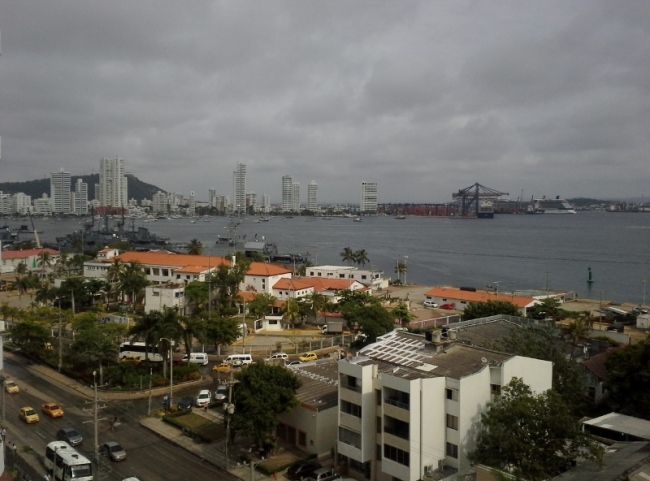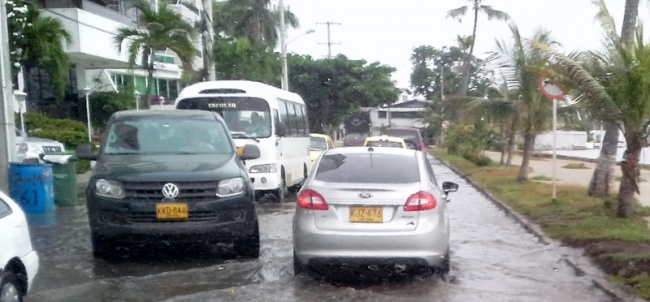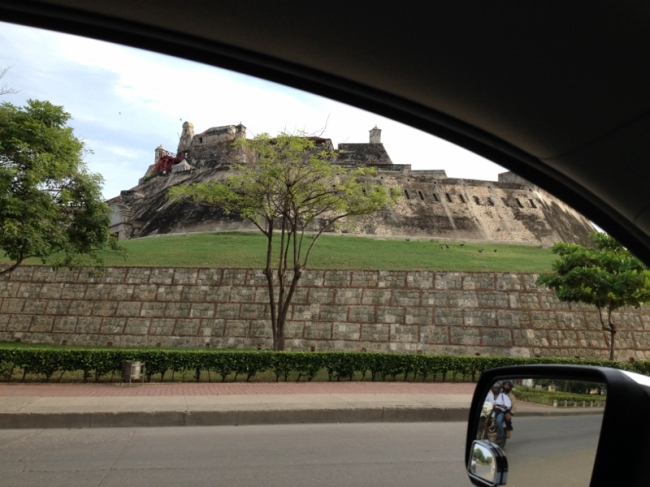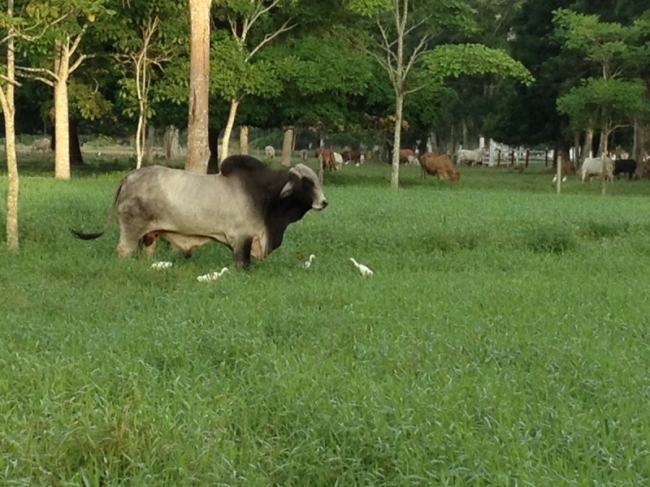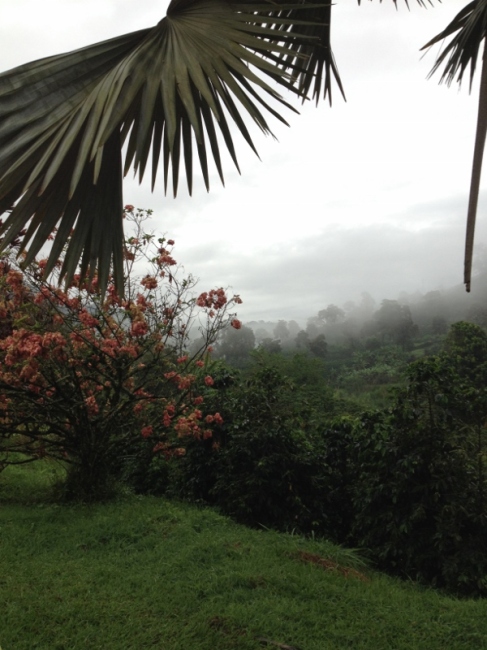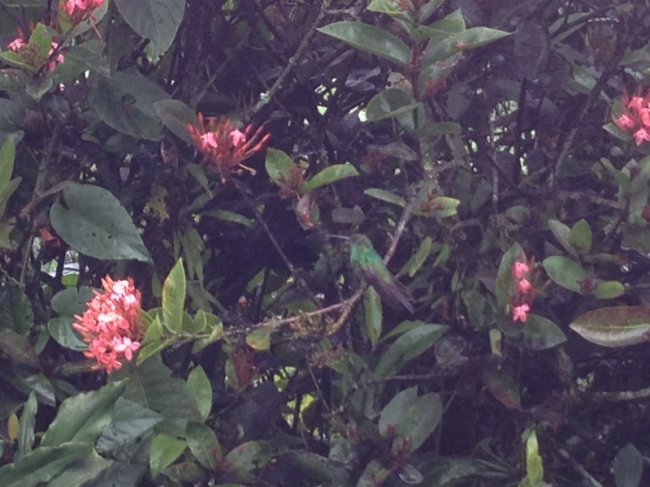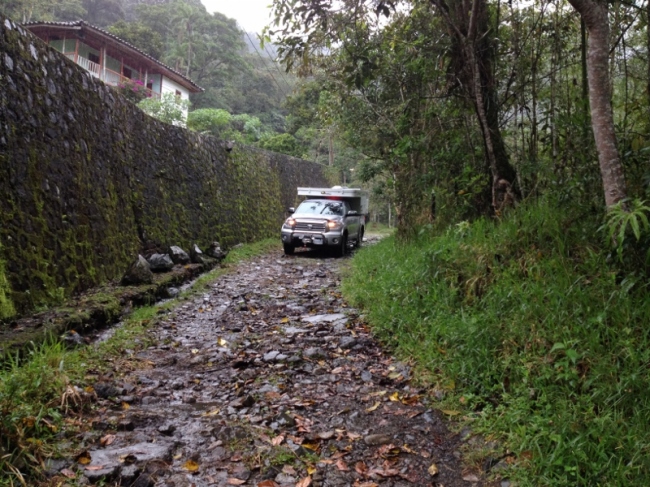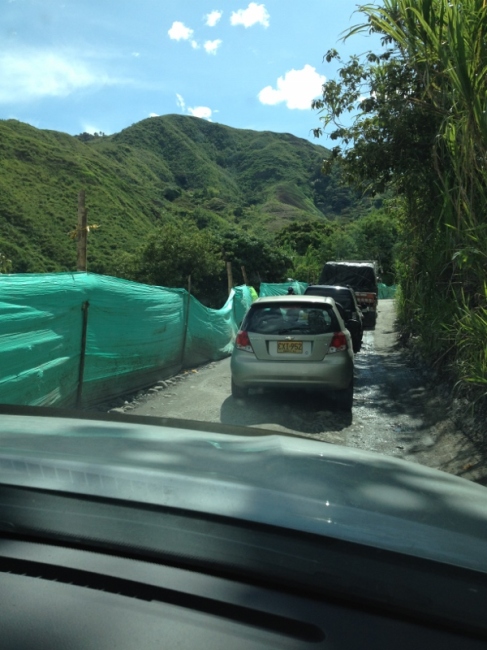The ferry docks in Cartagena. Cartagena was noisy. The traffic was insane. For a couple of Canadians from a small town it was overwhelming. It was getting dark by the time we had cleared customs and imported the dog and the truck. (For some reason Colombia singles out Canadian visitors, charging only Canadians a “reciprocity fee” of $80.00 each.)
We were driving around Cartagena looking for a hotel with parking that could accommodate our truck and would take dogs. The traffic was so intense and we were so lost that Nancy demanded that Bill stop and pull over. Immediately a man started tapping at the window. “Don’t open the window” Nancy yelled, but Bill, ever trusting, opened the window. The man asked a question in Spanish. “No comprende” answered Bill. “Anglais?” said the man and motioned a friend to come over. The friend came over and said, in perfect English, that he was a tour guide. After we asked for directions he announced that we wouldn’t like the hotel we were looking for, but he could offer us an apartment in the building beside us. Bill went with him to look, the apartment was more than adequate and there we stayed.
We have been having charging problems with the camper, and the fridge had quit working. We decided to take the truck to a shipyard as the wiring and the fridge are something that would be more familiar to a marine electrician than to the local Toyota dealer. Finding the shipyard, getting directed to the shipyard location that could do the work, getting told they were booked solid for several days, and getting the truck through the traffic back to the apartment took the better part of a day. Nancy was holding a parking spot at the apartment for Bill. She texted him asking where he was. He replied “one block away. ETA one hour” and he was almost right. It took 40 minutes.
It was with no regret whatsoever that we left Cartagena to their traffic problems and hit the slow roads of Colombia. That afternoon the Police guided us to our destination, the Ecohotel El Limonar. The woodwork of the construction was exquisite, the gardens were full of red butterflies and the neighbours were quiet. Actually, aside from the hotel staff, we were the only humans there. Ahhhhh.
After that we discovered the roads were impossibly slow going. Underpowered 50s vintage trucks, twisty mountain switchbacks and narrow lanes brought out the inner idiot in most drivers. Other travellers had cautioned us to be patient. It became apparent that we weren’t going to get to Medellin before dark. We were overtired, suffering from horrible head colds and desperate. We sought refuge for the night in a roadside fortress-like hotel, which was clean and modern on the inside and apparently a favourite with the truckers. Bill suffered from his cold while Nancy nursed and Capi enjoyed chicken from the restaurant. It wasn’t until morning we saw the big sign that said “No Mascotes”. No pets allowed.
The next night we spent at a coffee plantation that is reached after taking an insane tight backwards turn off the highway and driving for a few kilometers on a rough narrow lane. It was a beautiful spot. We were surrounded by gardens and coffee plants, and drank cups of the best espresso in the world. Shortly before dinner, two Policia arrived, and at least one was around the whole time we were there.
The roads of Colombia have numerous check points. The police and military are everywhere and are very pleasant. They treated us well. Most of the soldiers are just kids, doing their compulsory military service, and they usually smiled when we gave them the customary “thumbs-up” as a sign of support. There are small sandbagged bunkers at most of the bridges, and every soldier has a gun.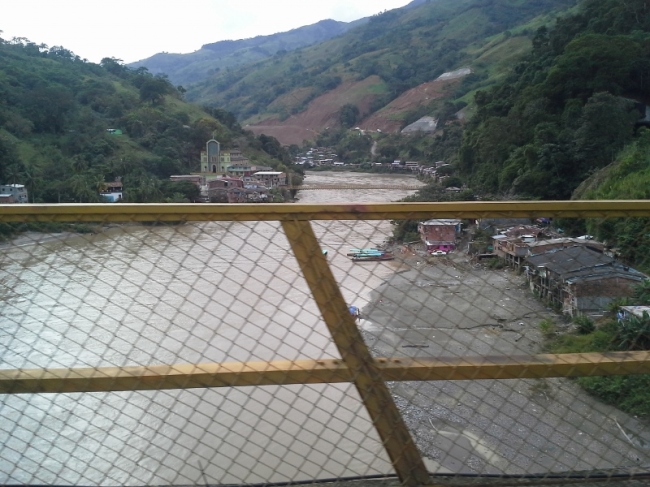
The country is beautiful. The landscape is somewhat like the Fraser Canyon in BC around Lillooet, but brilliant emerald green, dotted with mist. Unlike BC, the mountain roads are lined with houses and villages, all with spectacular sheer drops from their back walls, sometimes for thousands of feet. Although it seems there are more vultures than any other species of bird, parrots, canaries and butterflies are everywhere. Flowers and fruit trees run rampant.
On one stretch of highway, water runs out of the hills, and the locals have channeled it into hoses that they use to operate car washes for trucks. The sign that the service is available is a hose shooting water high into the air, creating fountains all along the highway.
We gave up on cell service and Wi-Fi when we got to Pance. It’s a little village in the mountains outside of Cali, a destination for intrepid bicyclists, motorcyclists and crazy campers.
The Hotel Finca Bellavista doesn’t have much in the way of signage, the road is a challenge, the view spectacular, and the accommodation spartan. Our camper is a luxurious castle compared to the accommodation of the family that runs the hotel, but they welcomed us and fed us with friendly hospitality, and didn’t want to be paid when we left, because we hadn’t stayed in a room.
The next night was another campsite, and then we made a dash for the border. A dash in Colombia is an average of about 25 kilometers an hour. That border, even though the Canadian government warns that it should be avoided, was the sanest and quietest one we have crossed to date. Export truck and us, import truck and dog. Paperwork galore, meet with the vet, inspect the VIN number, and into Ecuador!


